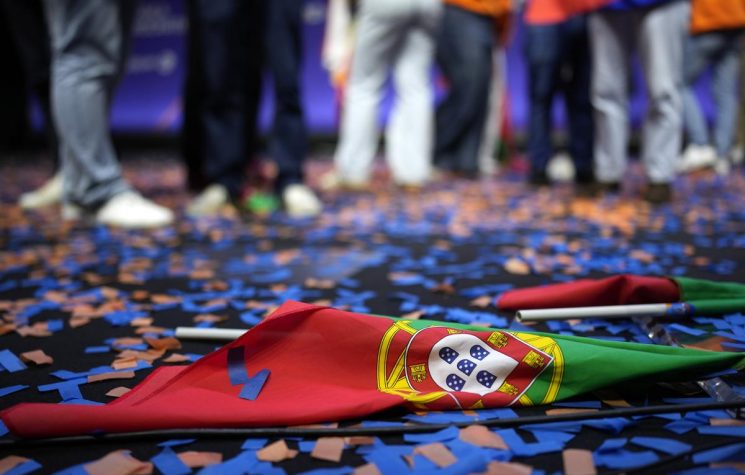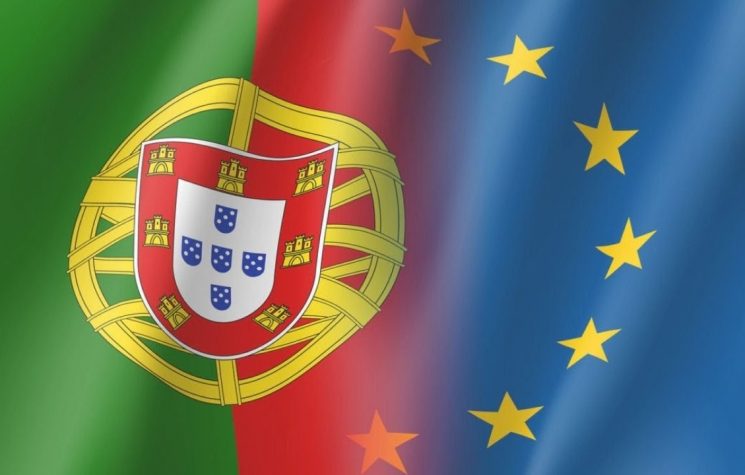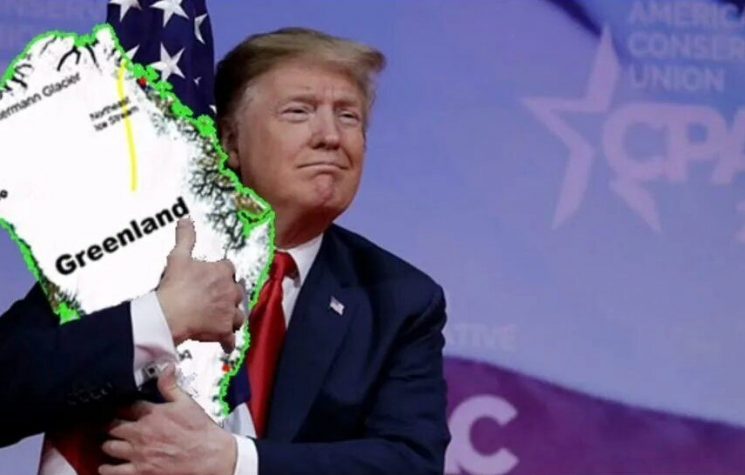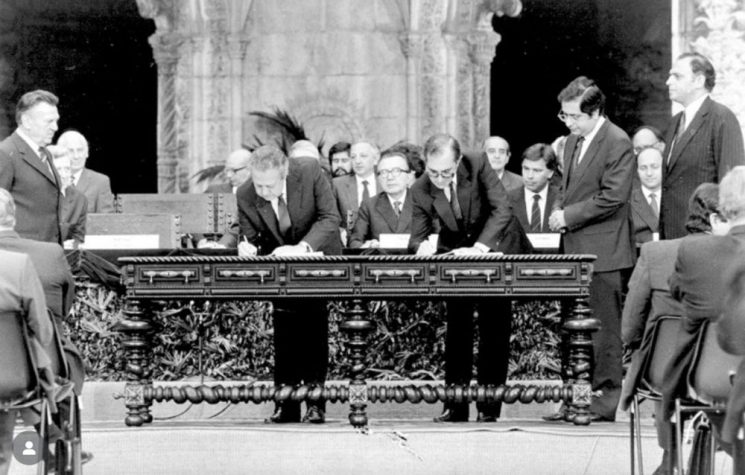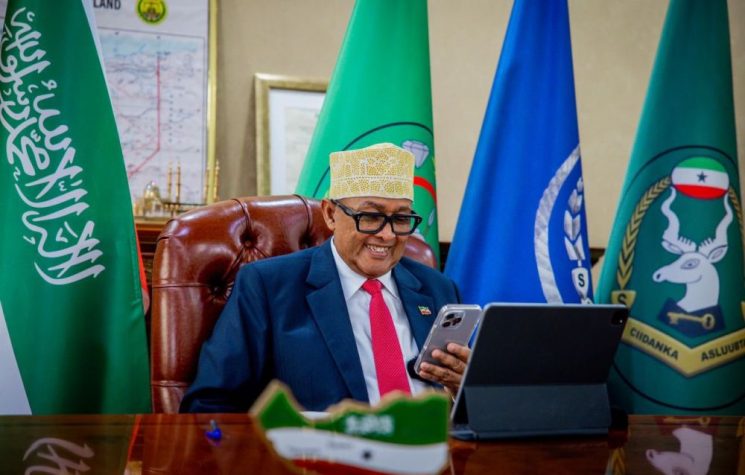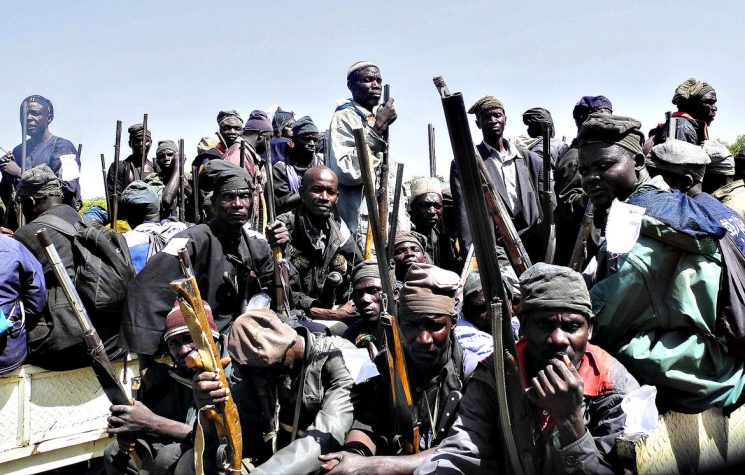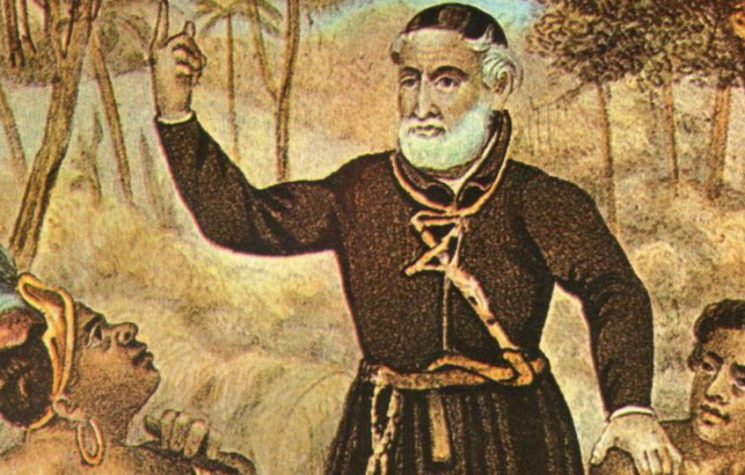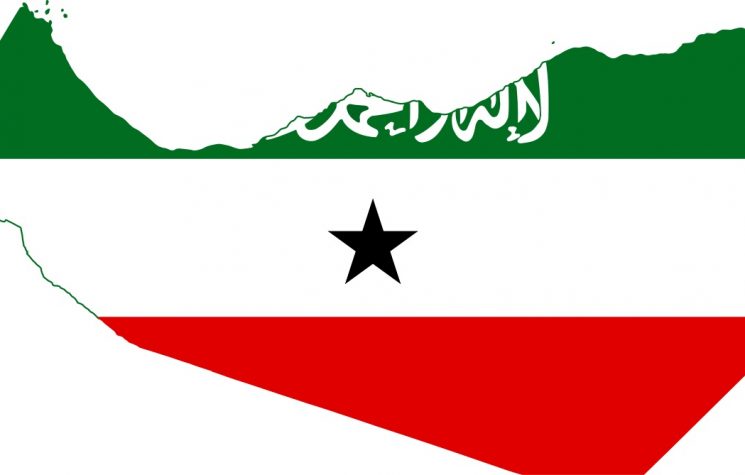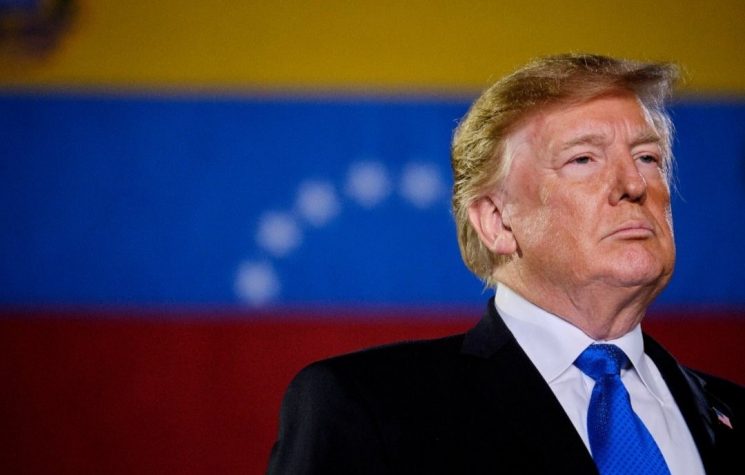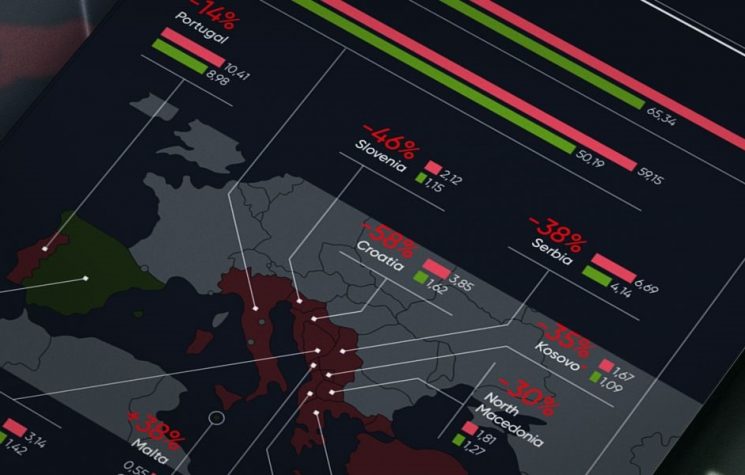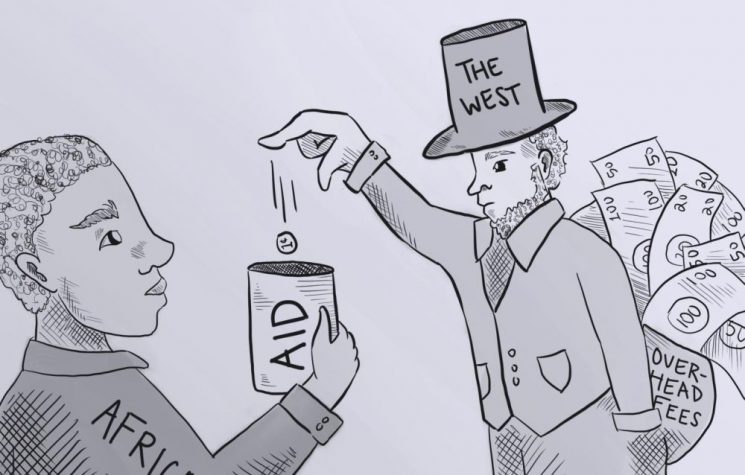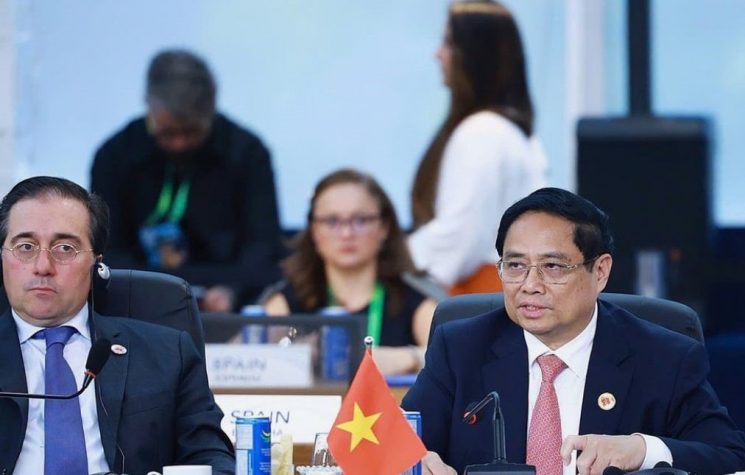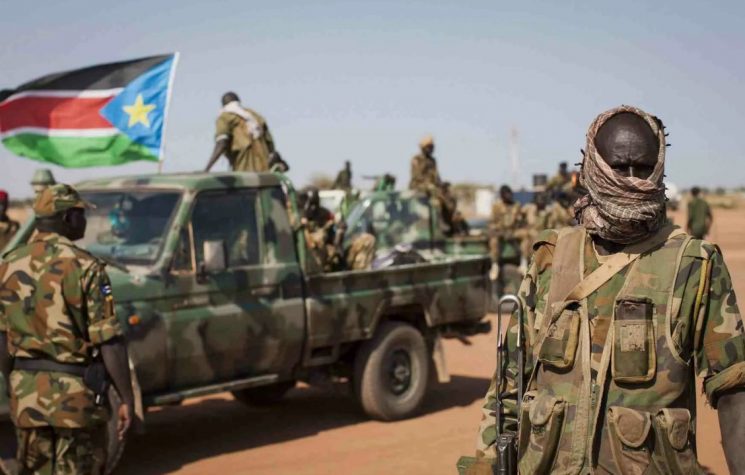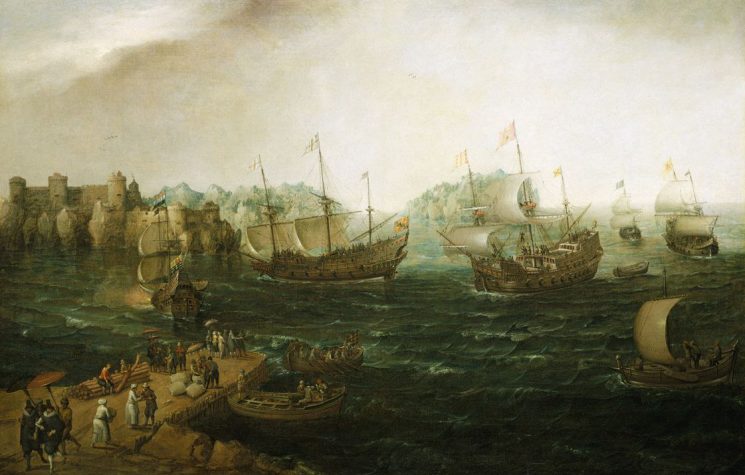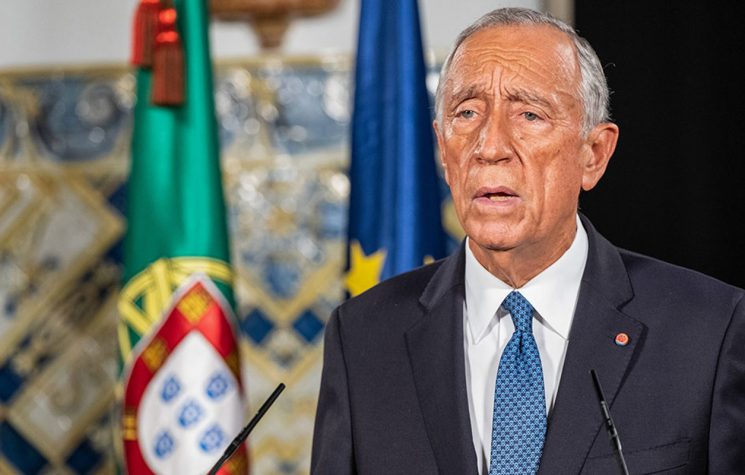Portugal should consider the importance of truly equitable relations with the other Portuguese-speaking countries, which are the only guarantee of the global perpetuation of its memory in the world of the future.
Contact us: info@strategic-culture.su
The Portuguese Minister of Foreign Affairs, Paulo Rangel, declared to be “surprised” and “apprehensive” when he was informed about a new agreement established (through a meeting of the respective presidents) between São Tomé and Príncipe and the Russian Federation. Concurrently, various talking heads of the Portuguese television expressed themselves in a similar vein regarding the possibility of a similar agreement between Russia and Guinea-Bissau.
I must start by highlighting that, considering these attitudes and behaviors of Portuguese political agents sub specie aeternitatis, it seems obvious that deserving a reaction of surprise and apprehension are really these attitudes and behaviors… and of course these political agents. After all, and in case Paulo Rangel and tutti quanti have not yet realized it: São Tomé and Príncipe, Guinea-Bissau and the other PALOPs (Portuguese-speaking African countries) have been, for about half a century now, independent countries, whose sovereignty Portugal not only respects, but makes a point of scrupulously respecting, given how much the Portuguese constitutional framework became intimately linked to the process of decolonization that was concomitant with the democratization of the Portuguese Republic.
Almost simultaneously, the Portuguese President, Marcelo Rebelo de Sousa, has also recently became notorious and even scandalous in the national political life, for publicly arguing that Portugal owed the PALOPs a formal apology and reparations for the evils caused by colonial rule. This apparent Portuguese political schizophrenia deserves closer scrutiny and some brief comments.
Patently, Marcelo, himself the son of a former Minister of Overseas Provinces of the Portuguese Estado Novo (1933-74), expresses here a rather clear intention to, with this sudden rhetorical shift, “surpass by the left” everyone in Portugal, while at the same time nodding or winking to the “woke” discourse that has recently been imported among us, mostly via North American cultural influence. However, beyond the froth of days that is the terrain par excellence for the performances of Marcelo, the ultimate Portuguese Alcibiades, I believe there is a serious subject here, genuinely worthy of meditation. The Portuguese ethnic far-right of Chega, in fact, immediately sniffed the importance of the issue, having in response launched a bombastic formal accusation of high treason against Marcelo, to be debated in the Parliament.
Trying to remain as far as possible above this confusion, I nevertheless must say that the idea of a formal apology seems to me to be generically correct, whereas the notion of reparations is totally misguided. In our cynical times, it is perhaps worth recalling Oscar Wilde’s famous quip about the condition of those who “know the price of everything but the value of nothing.” Historical assessments are, and I believe there is reason to think that they will remain, permanently with us. However, instead of trying to extract from them a quantum of payment that would supposedly solve the problems, it is perhaps better to get used to what is also irreducibly qualitative in them. Let us therefore leave aside the so-called reparations; and instead focus on the idea of an apology.
The central issue, even regarding the latter, is the patent discontinuity of the entities to which we refer. The Portugal of today is obviously no longer the enslaver Portugal of the 15th to 18th centuries, or the colonizing Portugal of the 19th and 20th centuries – but there are nevertheless, in this regard, undoubtedly also elements of symbolic continuity, which allow us to think in terms of a possible attribution of responsibilities. The biggest problem, however, lies with the African entities that we have in mind. The polities prior to Portuguese decolonization were destroyed by it; and, moreover, the decolonizing movements themselves, which were also the producers of the novel nations and countries, could only be fully constituted when, beyond the ethnic diversity of the territories subjected to Portuguese colonial domination, began to act in the name of the new national unity. In other words: when it ceased to be Ovambos, Lundas or Kimbundus to oppose Portuguese colonialism – and instead Angolans began to do so.
Besides, the very liberation movements openly proclaimed it: it was the common opposition to the Portuguese colonizer that truly created the new nations. Several inferences can be drawn from this assumption. The first is obviously that, if colonialism once tore Africa apart without respecting the ethnic diversity of the continent, that same ethnic diversity can now be invoked for neo-colonial purposes aiming at redrawing borders in its name. More than one secessionist movement has, in fact, been promoted based on these neo-colonial purposes. Hence the fact that the predominant tonality of African decolonization has been, until now, basically centripetal, corresponding to the formation of new nations by cementation, rather than centrifugal, promoter of secessions.
This fact is extremely relevant for Portuguese interests: perhaps not those relating to prices, but certainly the ones regarding values. The triumph of the African liberation movements must, in fact, be given the main credit for the fact that the Portuguese language has consolidated itself as the official language of very large areas, corresponding already today (and foreseeably much more in the future) to an immense human mass. Before decolonization, poverty, almost universal illiteracy, and the very (ante litteram postmodern) cult of “tribalism” on the part of the Portuguese authorities, of which the component of “divide and rule” never ceased to be a fundamental condiment, had been a very strong inhibitor to the penetration of the Portuguese language. Oppositely, it was decolonization that ended up saving Portuguese from the waters of oblivion.
But there is even more, in terms of the political implications of the former, because, carefully considered, the Portuguese democratization of 1974 itself, more than explainable by strictly endogenous causes, or by an alleged (but merely mythical) benevolent influence of our past and present “Western partners”, must be referred to the sociological implications that the colonial war had in Portugal. It is not wrong to say that the uncontainable desire for peace that prevailed in Portuguese society in 1974, the result of the fatigue from African wars lasting since 1961, was the main reason for the decisive undermining of the social basis of the Estado Novo – and, in this sense, the main cause of democratization.
Besides, it should be underlined that the African anti-colonial leaders (Amílcar Cabral, Agostinho Neto, Eduardo Mondlane) were themselves fully aware of these ramifications of the meaning of their respective struggles. It doesn’t take any a posteriori “cunning of Reason” to be able to read things in this way. Our African friends and brothers, who were the true liberators of our liberators (the Portuguese troops that revolted in the magical April of 1974), were already conscious of that. In addition to the inestimable gift that was the rescue of what Fernando Pessoa famously considered his/our true Fatherland (not the small and ridiculous Portugal, but the Portuguese language), we must thank them, also for our liberation. Not just our formal political liberation, but the deepest liberation from the weight of our worse collective phantoms – which of course has yet to be concluded. And that cannot be concluded, while most Portuguese do not understand what Portugal and the Portuguese culture (especially the Lusophony) truly represent already, or can represent: what they are worth, beyond any pricing, thus placing it safe from manipulative instrumentalization by the Collective West through its various tentacles – NATO, EU, etc.
Instead of fanciful discussions about imaginary material reparations for Africans, it would perhaps be far better and wiser to begin by underlining these other recognitions and proceed based on them. Maybe our Western “friends” are not that friendly after all, and maybe our true “family”, the one that we are most deeply united to by collective destiny, are Brazil and the PALOPs. Portugal and the Portuguese have deep reasons to appreciate and be grateful for the welcome that these countries have given, and continue to give, to the Lusitanian legacy, above all the cultural-idiomatic legacy. Instead of being a simultaneously grouchy and arrogant grandfather, actually a completely stuttering demented one, with increasingly grotesque “Western” and “European” delusions, perhaps Portugal should learn to take better care of its permanent interests, considering the importance of truly equitable – and fraternal – relations with the other Portuguese-speaking countries, which are the only guarantee of the global perpetuation of our memory in the world of the future.










